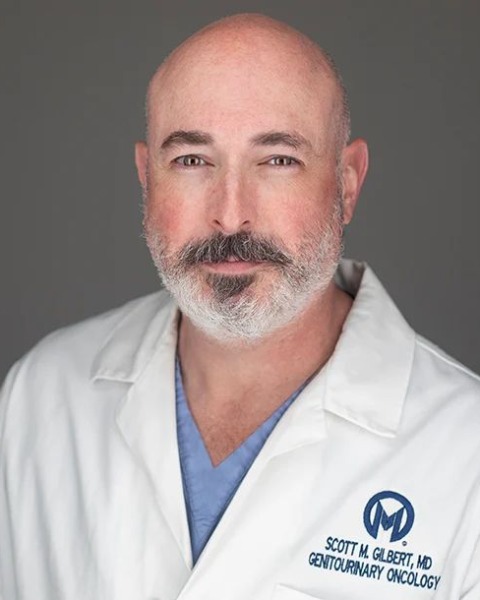Track: Testis Cancer
Session Type: Hot Topics
Hot Topics: Testicular Cancer - Improving Survivorship and Survival
Friday, October 31, 2025
15:15 - 16:45 GMT+0
-

Karima Oualla
Associate Professor of Medical Oncology
Hassan II University Hospital, Morocco -

Scott Gilbert
Senior Member and Professor, Department of GU Oncology
Moffitt Cancer Center, United States
Co-Chair(s)
Learning Objectives :
At the end of this session, attendees should be able to:
- Examine the current landscape of biomarker development and their clinical utility for early diagnosis and surveillance of testicular cancer.
- Recall management strategies for stage I and II seminoma and non-seminomatous germ cell tumors (NSGCT).
- Examine the benefits, limitations, and technical considerations of robotic retroperitoneal lymph node dissection (RPLND) in testicular cancer treatment.
- Explore strategies for mitigating treatment-related toxicities and optimizing outcomes through multidisciplinary patient-centered approaches.
Presentations:
-
15:15 - 15:25 GMT+0Advancements in Biomarkers for Early Detection and Monitoring: Where Are We Now?
Speaker: Siamak Daneshmand – University of Southern California
-
15:25 - 15:35 GMT+0Management of Stage I Seminoma/NSGCT: Optimizing Psychosocial and Gonadal Outcomes
Speaker: Scott Gilbert – Moffitt Cancer Center
-
15:35 - 15:45 GMT+0Management of Stage II Seminoma: Where Are We Now?
Speaker: Siamak Daneshmand – University of Southern California
-
15:45 - 15:55 GMT+0Robotic RPLND: Progress and Pitfalls
Speaker: Reza Mehrazin – Mount Sinai Hospital New York
-
15:55 - 16:05 GMT+0Long-Term Survivorship: Managing Treatment Related Toxicity
Speaker: Karima Oualla – Hassan II University Hospital
-
16:05 - 16:15 GMT+0Importance of Multi-Disciplinary Approaches in Managing Testicular Cancer
Speaker: Brusabhanu Nayak, MS, MCh – All India Institute of Medical Sciences
-
16:15 - 16:25 GMT+0Primum Non Nocere: The Barts Experience
Speaker: Tim Oliver, MD – Queen Mary University of London
-
16:25 - 16:45 GMT+0Case-Based Management of Stage II NSGCT: Perfecting Outcomes
Speaker: Mahendra Pal – Tata Memorial Hospital, Homi Bhabha National Institute

